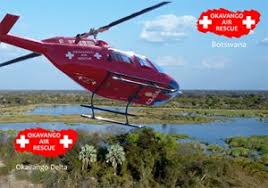Understanding Botswana: Culture, Economy, and Wildlife

Introduction
Botswana, a landlocked country in Southern Africa, is known for its rich cultural heritage, stunning landscapes, and diverse wildlife. With a reputation as one of the continent’s most stable democracies, Botswana plays a significant role in the regional economy and tourism. The country’s unique blend of tradition and modernity makes it an important case study for those interested in African development and culture.
Geography and Wildlife
Botswana is home to a variety of ecosystems, notably the vast Kalahari Desert and the Okavango Delta. The latter is a UNESCO World Heritage Site and one of the few inland deltas in the world. This region is renowned for its extraordinary biodiversity and is a prime destination for eco-tourism. Animals such as elephants, lions, and various bird species can be spotted in their natural habitats, attracting both domestic and international tourists.
Cultural Heritage
Botswana’s cultural landscape is incredibly diverse, with over a dozen ethnic groups, each with their own languages, traditions, and customs. The Tswana people are the largest group and their culture profoundly influences the national identity. Traditional music, crafts, and festivals, such as the annual Botswana Cultural Festival, highlight the importance of heritage in contemporary Botswana. Moreover, the infusion of contemporary arts, including theatre and visual art, illustrates the dynamic evolution of Botswana’s cultural expressions.
Economic Developments
Economically, Botswana has transformed significantly since gaining independence in 1966, moving from a largely agrarian society to a more diversified economy. Diamond mining is the backbone of the economy, contributing significantly to government revenue and employment. However, the country is actively seeking to reduce its dependence on diamonds by investing in sectors like tourism, agriculture, and renewable energy. In recent years, Botswana has been recognised for its sound economic management, with policies aimed at sustainable growth and investment in human capital.
Conclusion
In conclusion, Botswana showcases a unique interplay of tradition and progress, serving as a model for other developing nations. Its commitment to democratic governance, economic diversification, and conservation of wildlife presents a hopeful picture of what the future can hold for African nations. As global interest in sustainable tourism and wildlife conservation increases, Botswana is poised to attract more visitors and investments, further developing its economy and enriching its cultural landscape. Understanding Botswana’s journey offers valuable insights into the broader narrative of African development.









